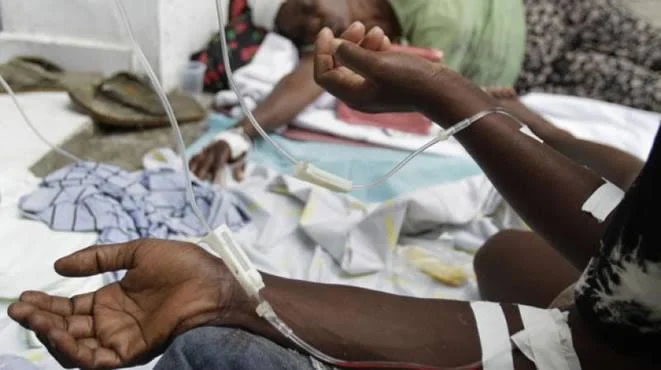Angola is facing its worst cholera outbreak in two decades, with the disease spreading rapidly and leaving heartbreak in its wake. Since January, cholera has swept through 17 of the country’s 21 provinces, claiming the lives of nearly 600 people and infecting over 18,000 others, according to the United Nations.
Health workers, backed by Angola’s Ministry of Health and international partners like the World Health Organization, are racing against time. From community outreach to emergency medical teams, every effort is being made to contain the disease. Yet, the challenge is steep.
“We walk around with loudspeakers, urging people to do what they can to get rid of this evil,” said António Catunda, a health promotion supervisor trying to educate communities about prevention.
In February, a mass vaccination campaign reached one million people, but it hasn’t been enough to curb the rising toll. The outbreak’s case fatality rate stands at 3.2% — more than triple the acceptable level for early and effective treatment.
For frontline workers like Flávio Njinga, the emotional burden is growing heavier by the day. “We’re tired of seeing deaths, tired of seeing patients suffer,” he shared. “Since January 13, we’ve been on our feet. We can’t even rest for a day — we are the rapid response team, and we won’t stop until this ends.”
Children and youth under 20 years old are among the most affected, deepening concerns for the nation’s future. Angola’s last major cholera crisis in 2006 killed more than 2,700 people, and since then, seasonal outbreaks have remained a threat — especially during the rainy season.
The broader region is also suffering. Between January 2024 and March 2025, more than 178,000 cholera cases have been confirmed across Eastern and Southern Africa, with Angola and South Sudan hit hardest.
This is not just a health emergency — it’s a humanitarian one. For the people of Angola, the fight is far from over.

